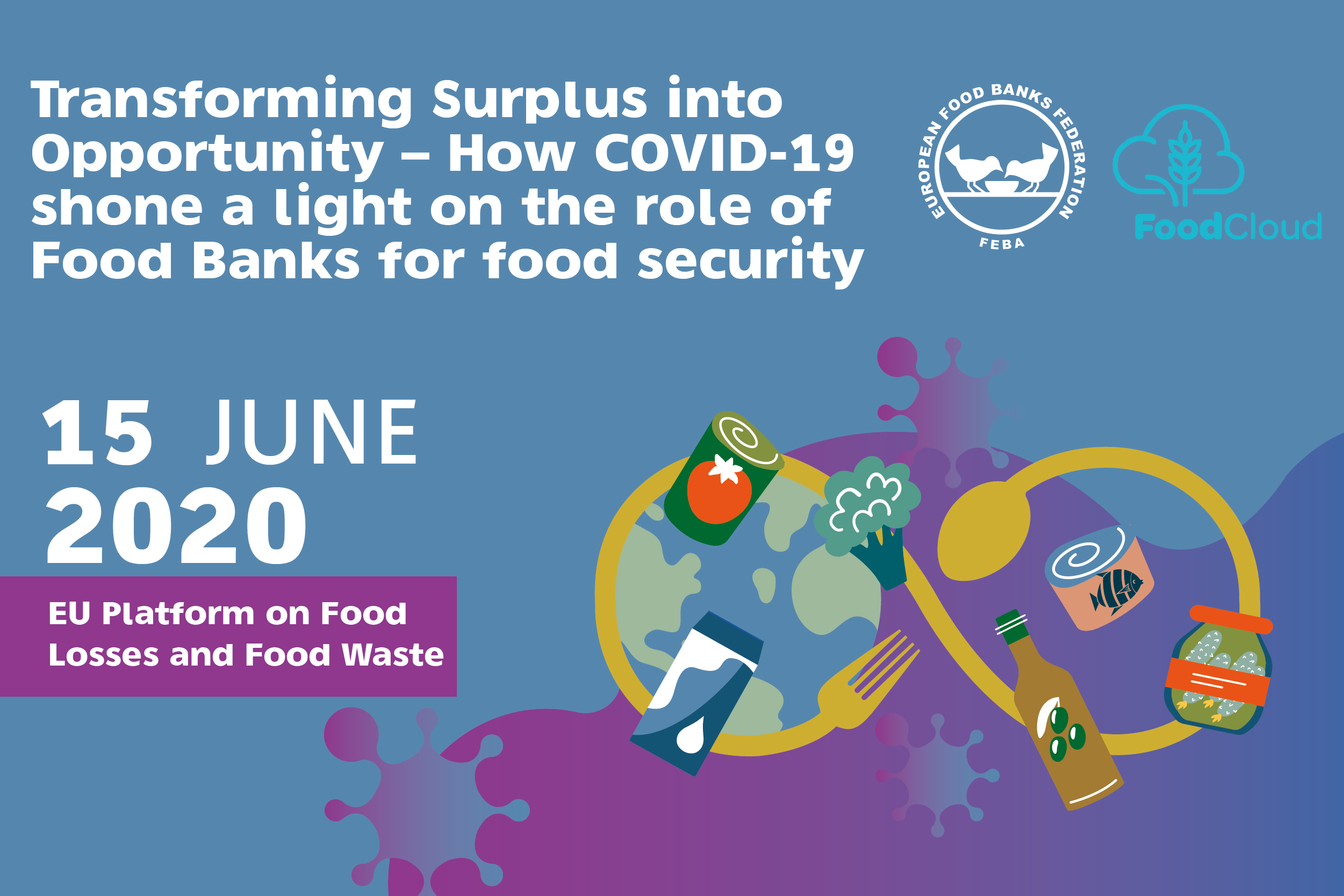Working together to redesign a food system that prevents food waste and ensures healthy diets and a better planet.
On June 15, the 8th meeting of the EU Platform on Food Losses and Food Waste took place in virtual mode. The Commission held an exchange on the Farm to Fork Strategy and later explained what the future steps will be on the EU food loss and waste action plan. The meeting started with a general introduction on the impact Covid-19 had on the food supply chain and food waste. In fact, in her opening statement Stella Kyriakides, European Commissioner for Health and Food Safety,underlinedhow the COVID-19 pandemic has led everyone to rethink strategies especially about having a resilient food chain. On 27th of May, a major recovery plan was submitted within the Green Deal, and the Farm to Fork Strategy is part of this. The Platform will make an essential contribution in this scenario.
During the online meeting, representatives from DG Health and Food Safety presented in depth the new Farm to Fork Strategy, followed by an update on work of the Food and Agriculture Organisation regarding sustainable food systems including preparation of UN Food Systems Summit 2021 and International Day of Awareness of Food Loss and Waste. In this context,Sabine Jülicher, Director for Food and Feed Safety & Innovation at DG Health and Food Safety, reminded the audience that food loss and waste went up during the pandemic and that the number of people in need is also on the rise.
In the panel“Food loss and waste prevention initiatives in the context of Covid-19. Update from the Commission and exchange with members” FEBA had the chance to make a presentation together with its Irish member FoodCloud: “How COVID-19 shone a light on the role of Food Banks for food security”. Emma Walsh from FoodCloud started explaining that, because of COVID, 40% of charities in Ireland closed, food service shut down and recruiting new young volunteers was a challenge. In front of an unprecedented demand for food, FoodCloud launched an emergency appeal, engaging more with actors of the food supply chain, doubling the weekly volume of food.
Angela Frigo, Secretary General at FEBA explained that European Food Banks have remained open to prevent food waste and redistribute food to charities assisting people in need. In the last 3 months and today, Food Banks are operating in a new and increasingly complex environment. The demand of food has increased up to 50% compared to the pre-COVID period. At the same time, in the first five months of 2020 only, the majority of European Food Banks increased by 50% the amount of food redistributed, in comparison with 2019 levels.
At the beginning of the outbreak, Food Banks suffered a fluctuation of the supply – the traditional donors, such as food and drink manufacturers and the distribution sectors had to reorganize their internal procedures and were affected by panic buying of consumers, while the food service sector and restaurants were forced to close with quantities of surplus food available. This was a tremendous challenge for logistics: many pick-up points, mainly with chilled and frozen food, in a period when restrictions to mobility where in place in all countries.
Food Banks in Europe have expressed theirfull creativity and professionalism to face this unprecedented challenge. Food Banks have demonstrated that they are a reliable partner not only to feed those in need but first of all to support the food supply chain. Food Banks are able to quickly adapt to an unprecedented and unexpected situation, and today their daily activity is more and more essential to ensure that no good food goes to waste. The Farm to Fork Strategy is an important opportunity to recognize Food Banks as an integral part of the food system and not only as an option.
All the presentations and the proceedings of the 8th Meeting of the EU Platform on Food Losses and Food Waste are available on the event page.




